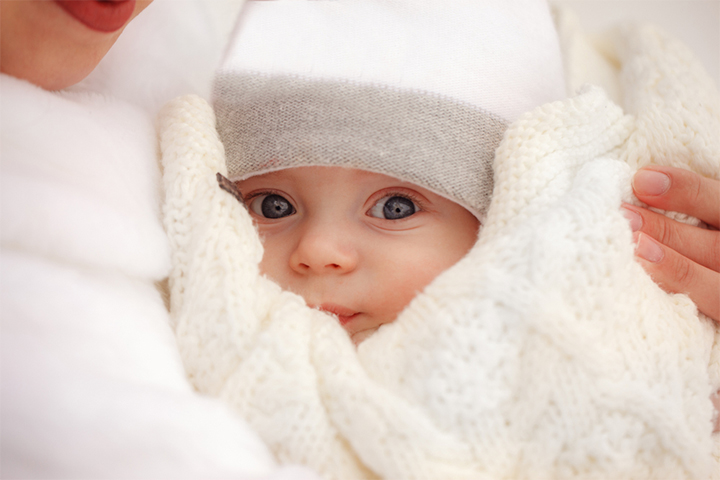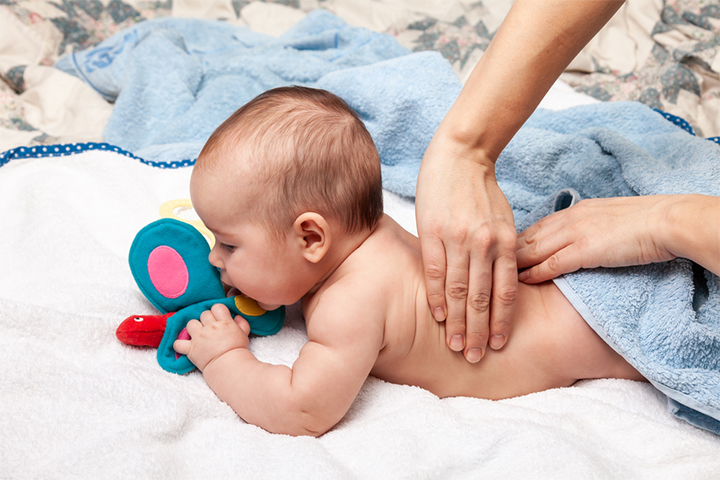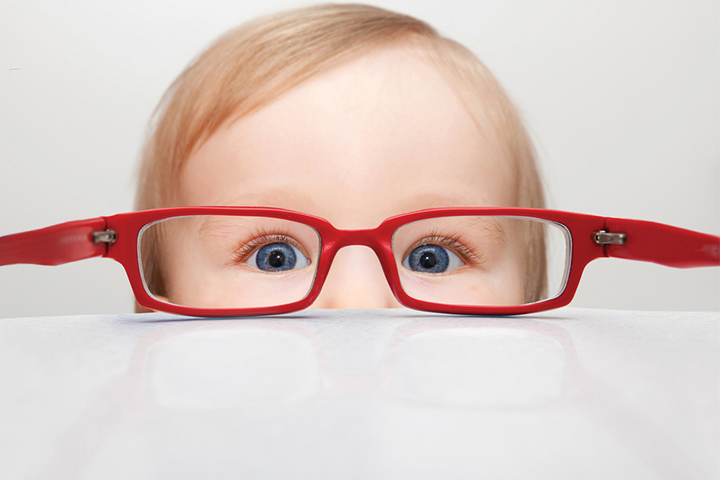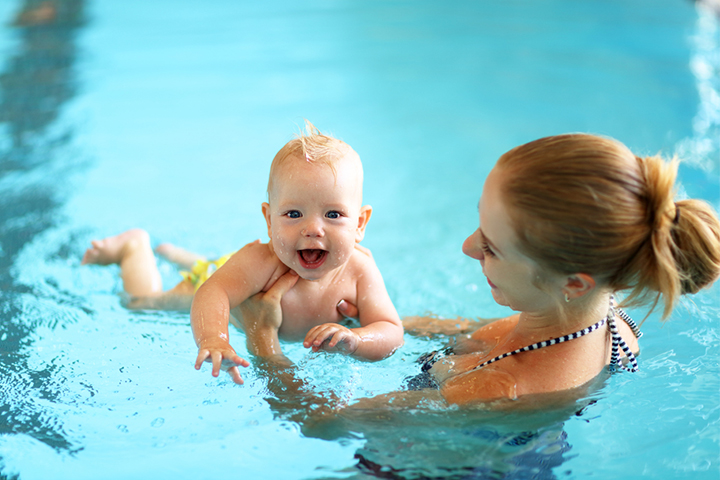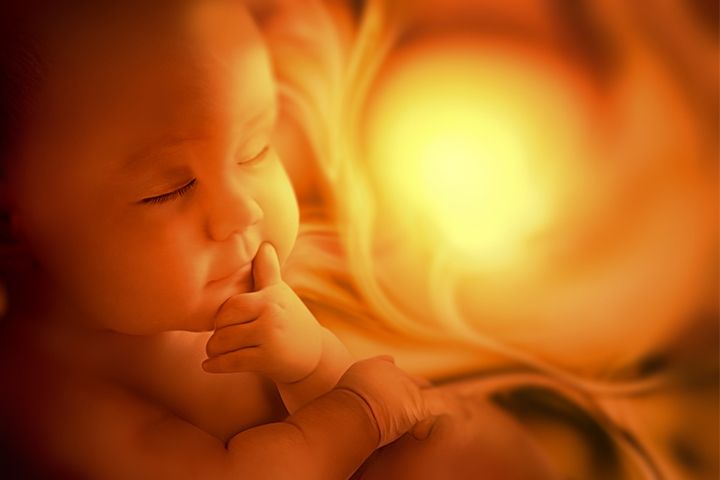
Image: Shutterstock
Babies are almost entirely dependent on their parents or caregivers in the initial stages of their life. However, these simple and innocent beings have numerous hidden abilities that might surprise many adults. Babies might be tiny, but they have a pretty good amount of astonishing powers. In reality, newborns are considerably more powerful than people realize; they can use hormonal signals to control their mothers, nap with their eyes wide open, and have no fear of heights.
Let’s look at some of these extraordinary qualities a baby possesses that you might not have even heard of till now.
1. Babies Don’t Shiver
Image: Shutterstock
Even if a baby feels cold, they do not shiver. This is because they have a unique method of controlling their body temperature: brown adipose tissue makes up 5% of this tiny person’s body (1). As a result, newborns are less vulnerable to cold than grownups are because this prevents overcooling. Unfortunately, this form of heat regulation is absent in adults. Also, when you notice your infant trembling, it could signify neurological issues or just hunger.
2. Babies Have More Bones
Image: Shutterstock
Babies have three hundred bones at the time of their birth. Many of these will become harder, and some will combine as it matures. The skull, for instance, is made up of three sections of bone connected by cartilage so it can pass down the birth canal. Your baby’s head has soft areas because of this. But these fragments come together with time to form a single, sturdy bone. So your kid will only have 206 bones in their body when it is an adult.
3. Babies Are Short-Sighted
Image: Shutterstock
Newborn babies can only see about 8-12 inches in front of their faces (2). The rest is a jumble of light, structure, and motion. So your baby can look straight into your eyes while feeding, as it’s the ideal distance. Additionally, when they grow up to 2 months, they can also focus on moving objects. You can encourage your little one to explore their developing eyesight by displaying toys with striking patterns in vibrant colors.
4. Babies Are Born Swimmers
Image: Shutterstock
When submerged, newborns automatically retain their breath and may even make splashes with their legs and arms. You can watch these natural abilities in reality if you enroll your child in swimming lessons! Ensure your newborn doesn’t become too cold when you take them swimming. Rather than wearing a traditional swimming outfit, consider a baby swimsuit or go for a dedicated baby pool with lukewarm water.
5. Babies Talk In The Womb
Image: Shutterstock
Your unborn baby can sense your voice as well as other noises as early as 23 weeks into the pregnancy. So even though they won’t speak until they are roughly a year old, they are already mastering your language. Your baby loves the sound of your voice. Therefore they will enjoy listening to you chat and singing to them. It’s never too late to start reading to your child, and the more phrases she listens to now, the more probable it is that she will develop stronger language skills in the future.
6. Babies Love White Noises
Image: Shutterstock
Sounds similar to the rhythmic vibrations your baby experiences in the womb will soothe and comfort them . When you are skin-to-skin with them, the rhythm of your heartbeat may also calm them and control their respiration. Most newborns also love the noise of a hair dryer or washing machine, the rumble of a motor as they ride in the backseat, or even just some plain white noise.
7. Baby Poop Evolves With Time
Image: Shutterstock
Meconium, a dark, gooey material, makes up your baby’s first feces. Following that, whether you are breastfeeding or using a formula feeding method will determine what you see in your baby’s diaper. In addition, breastfeeding has the unintended side effect of making baby poop less stinky. Try not to stress out too much about how frequently your child poops. It could happen multiple times every day or only once every 3 days. Finding out what is usual for your infant and keeping an eye out for abnormalities are the only things that matter.
8. Babies Don’t Fear Height
Image: Shutterstock
According to research, babies are not terrified of heights until they are 9 months old. (3)They don’t experience that terror till they can crawl. Babies that are younger exhibit this kind of fearlessness because they lack knowledge. The brain learns to correct its equilibrium as a kid learns to move freely in space and receives information from their field of vision. The newborn has no fear when they are lying still since their world is stable and predictable.
Aren’t babies amazing? Well, they’ll always have some tricks under their sleeves. Hopefully, after learning about these strange facts, you’ll see your kids as super beings altogether. Happy parenting!

